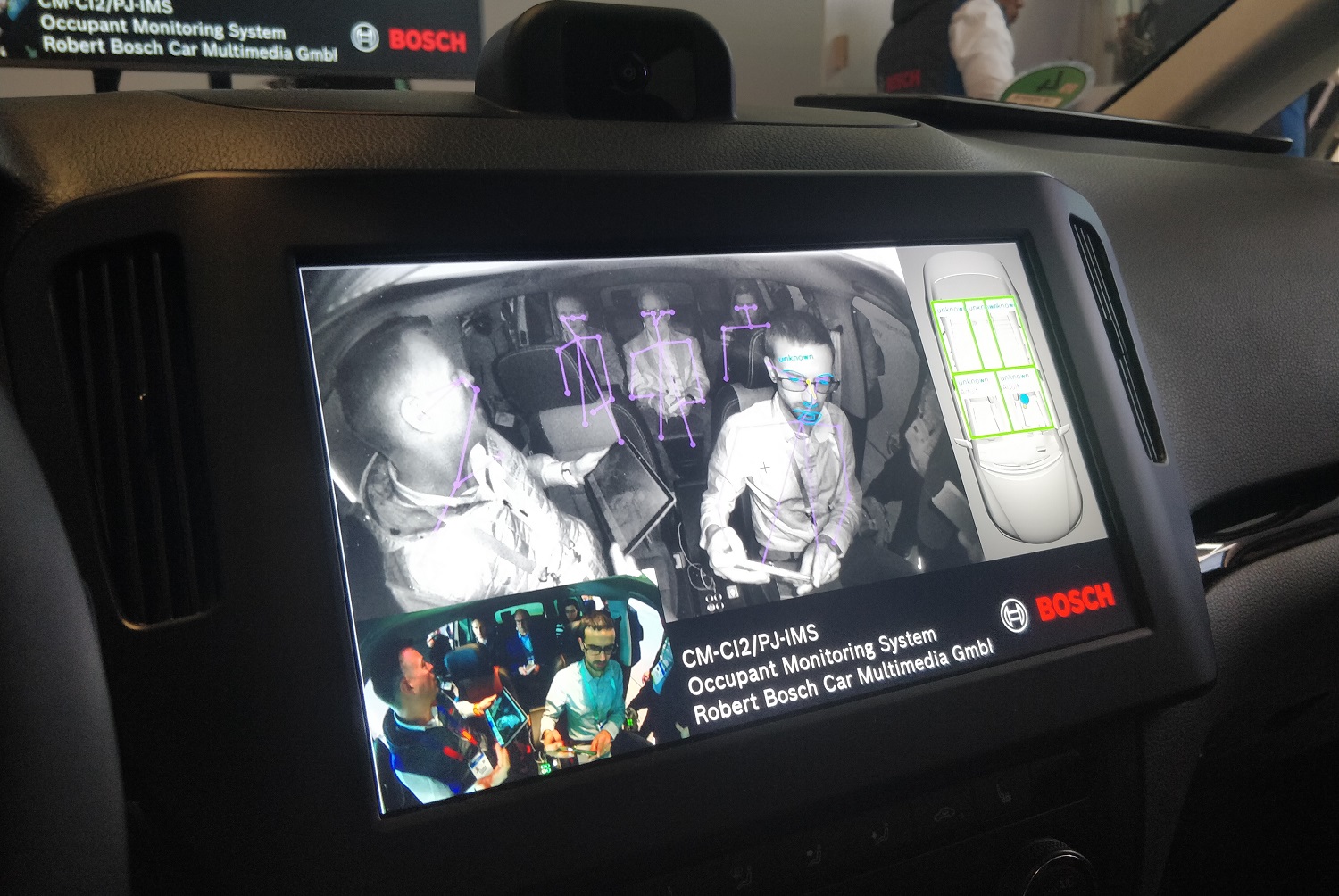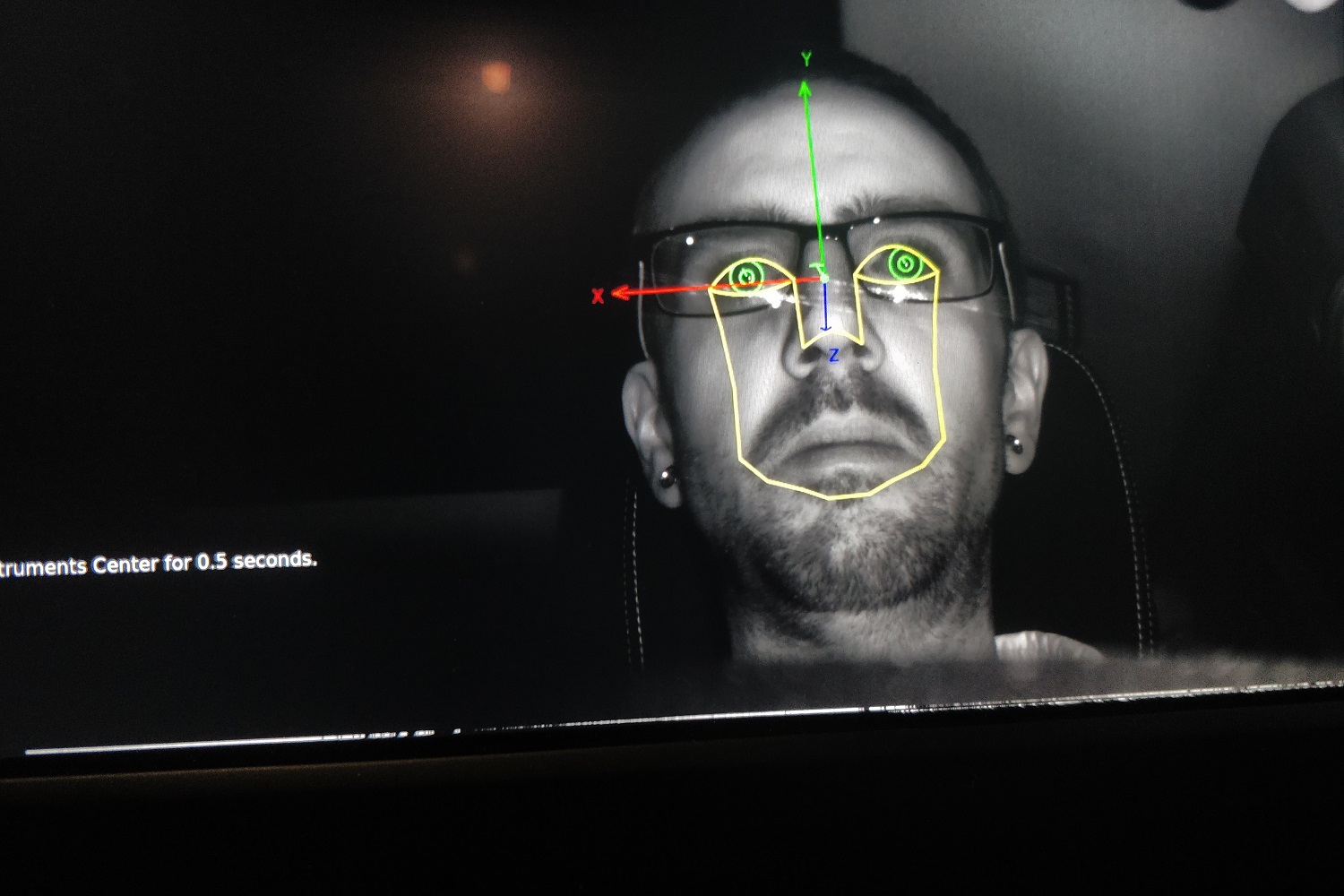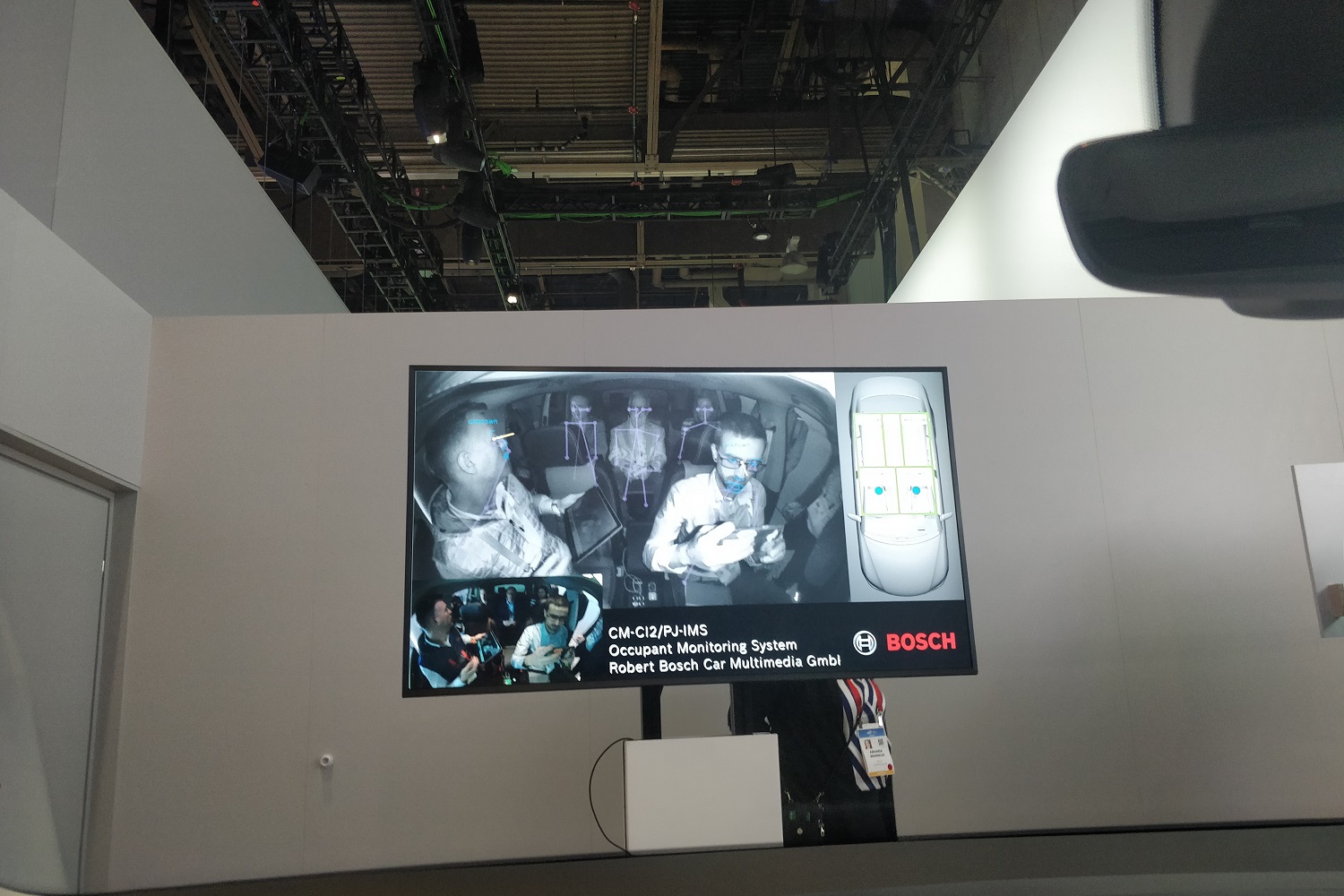This story is part of our continuing coverage of CES 2020, including tech and gadgets from the showroom floor.
German supplier Bosch is working on bringing facial recognition technology to the world of cars. Similar to what’s available on many smartphones, the feature is a way to keep the passengers safe, entertained, and comfortable.
Digital Trends checked out the tech at CES 2020, where Bosch packed it into a #vanlife-spec Volkswagen Touran for demonstration purposes. In this application, it consisted of a driver-facing camera positioned between the steering wheel and the instrument cluster, and a passenger-monitoring camera located where the map lights are. Thomas Lenzen, one of the product managers responsible for the technology, explained that it’s possible to move the cameras around, and add or remove them as needed. Users may want a third camera to watch their kids in the back.
The cameras transfer footage to an on-board computer which relies on artificial intelligence to gain several important data points. It identifies the location of the driver’s facial features, like their nose and the mouth, and it knows where they’re looking, so it can tell if they’re distracted. It also takes every passenger’s posture into account.
By leveraging this technology, the car is capable of telling when the driver is looking down at a phone, trying to identify a bird on a power line, eating, drinking, or drowsy. What happens next depends on the application; overriding the owner’s wishes is a highly controversial thing to do. The system could merely emit audible and visual warnings. It might also slow down the car, prevent it from accelerating, or bring it to a stop entirely.
This technology also has happier, more practical applications. Bringing the house into the car is a big topic at CES 2020. The companies looking to make living room-like interiors while integrating familiar features like Spotify, Netflix, and Amazon Alexa are too long to list. Facial recognition can play a big role this transformation, because it immediately knows who’s sitting behind the seat, and adjust a variety of parameters accordingly. If you listen to rock, and your significant other loves country, it remembers not to blare Shania Twain after you start the engine.
The driver-facing camera also powers the Virtual Visor, an award-winning innovation Bosch displayed at CES 2020. It’s cool, but it inevitably raises questions about privacy. If you’re being monitored every time you’re driving, what can be done with the footage, and by whom? Lenzen stressed the intent is not to store the footage or use it outside the car like a plane’s black box. Whether it would be saved in the first place again depends on its application.
Bosch is talking with manufacturers about bringing this technology to the market. It hasn’t revealed the identity of its first client, or where the feature will be rolled out, but it’s ready for production
Follow our live blog for more CES news and announcements.







